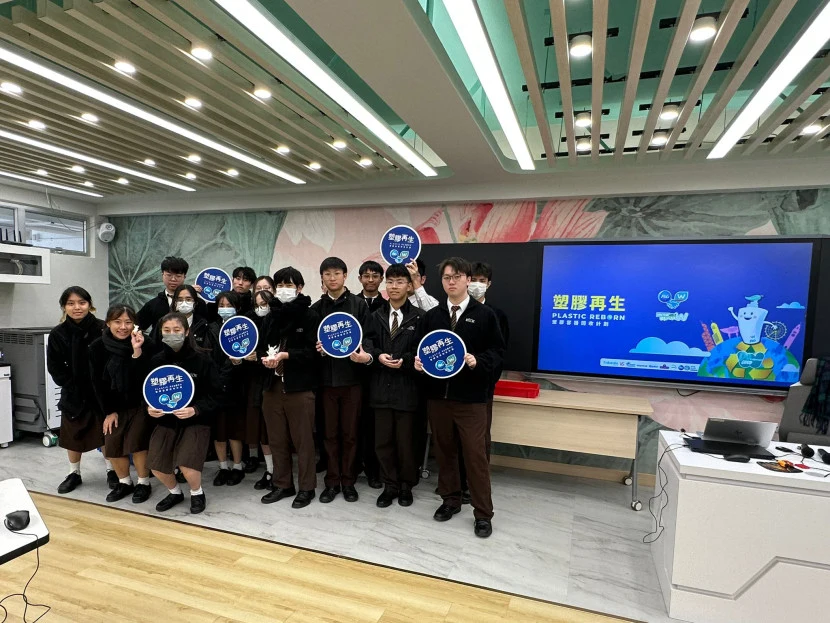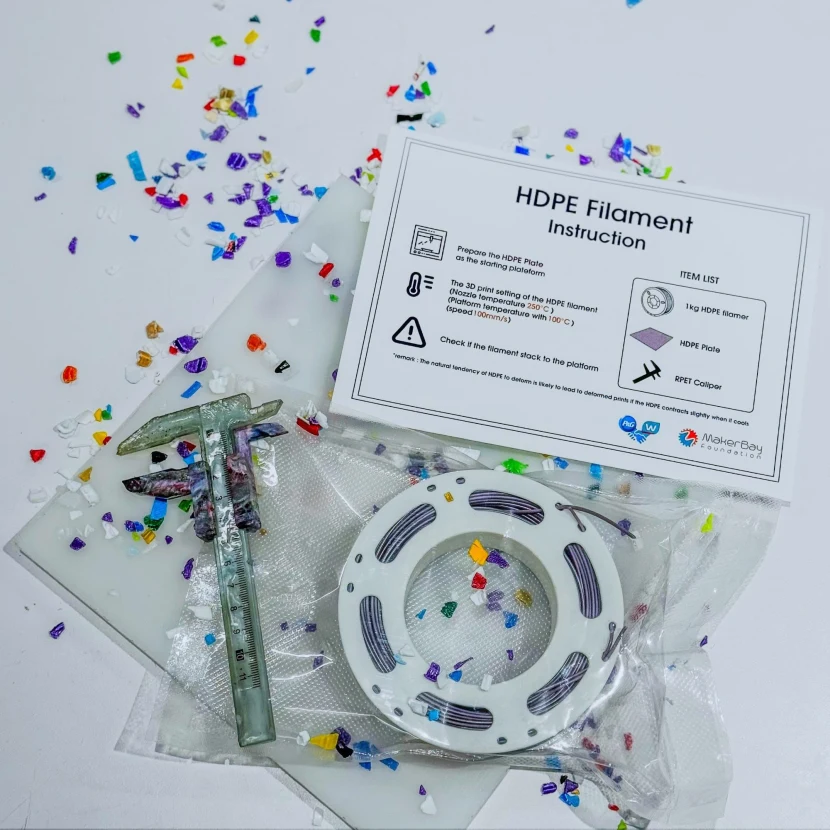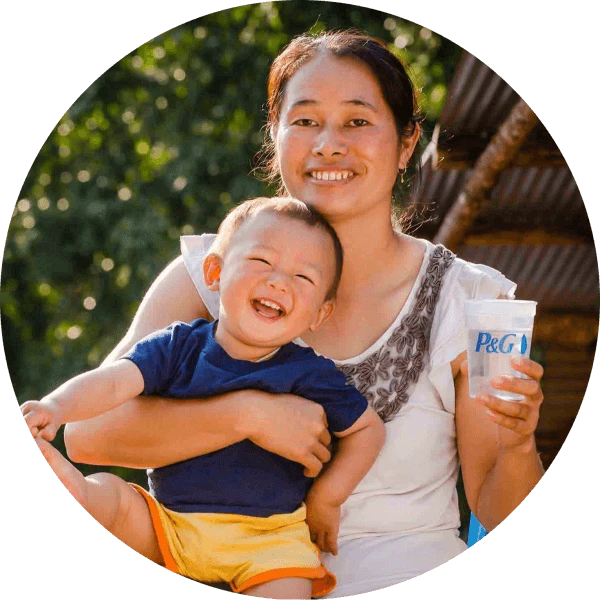1/29/2024
P&G and Watsons Hong Kong's "Plastic Reborn" Program is in its third year
Turning waste plastics into 3D printing materials for STEM teaching shows the possibility of circular economy
Hong Kong is facing an urgent problem of urban waste plastic disposal. The government plans to implement a garbage charging policy this year, aiming to promote enterprises and the public to practice waste reduction and recycling. Adhering to the mission of integrating environmental sustainability into corporate operations, P&G Hong Kong has joined hands with Watsons Hong Kong to launch a three-year “Plastic Reborn” program in 2021. In its third year, the program has successfully transformed recycled plastic bottles into materials and tools required for 3D printing. These have been donated to 50 primary and secondary schools for educational purposes, demonstrating the potential of plastic circular recycling.

Figure 1: A total of 5 campus STEM workshops have been held since the program was launched to continue the mission of environmental education.
In view of the impact of Hong Kong's plastic waste on the local environment, the “Plastic Reborn” program provides Hong Kong citizens with a reliable and convenient plastic recycling platform. To inspire society's imagination towards a circular economy and explore new avenues for plastic waste, in the third year of the program, P&G partners with the local co-creator MakerBay Foundation. They transformed recycled plastic bottles into 3D printing materials and the required measuring tools for printing, suitable for primary and secondary schools. These materials and tools will be gradually delivered to 50 schools in Hong Kong for use in STEM courses. This initiative not only converts plastic waste into valuable resources but also reduces society's demand for natural resources.

Figure 2: P&G and Watsons Hong Kong partnered with MakerBay to “reincarnate” waste plastic into 3D printing materials and measuring tools.
In addition, since June, P&G and MakerBay have jointly held 5 STEM workshops in middle schools. These workshops not only provided students with the opportunity to be the first to experience the use of 3D printing materials made from waste plastics but also raised awareness about the "Plastic Reborn" program and the current waste plastic problem in Hong Kong. The workshops aims to inspire students to confront environmental protection issues with innovative thinking while enhancing the environmental awareness of the younger generation.
Before the implementation of the "Plastic Reborn" program, P&G conducted surveys and research on the recycling habits of Hong Kong consumers to conclude simplified the recycling procedures and increased the transparency of the process. Leveraging the extensive store network of Watsons Hong Kong, clean and convenient recycling points were established in various districts throughout the city. This initiative aimed to enhance the willingness of citizens to recycle and build public trust in the feasibility of plastic recycling.
Thanks to the support and participation of the public, even amid the disruption of the pandemic, the program has successfully collected over 740,000 plastic containers, which are equivalent to the height of 18.5 Mount Everest or 411 IFCs. The results are remarkable. Now P&G and Watsons are taking the lead in cooperating with local innovation associations to take the first step towards a circular economy, thereby encouraging society to come up with more innovative solutions to waste plastics.


